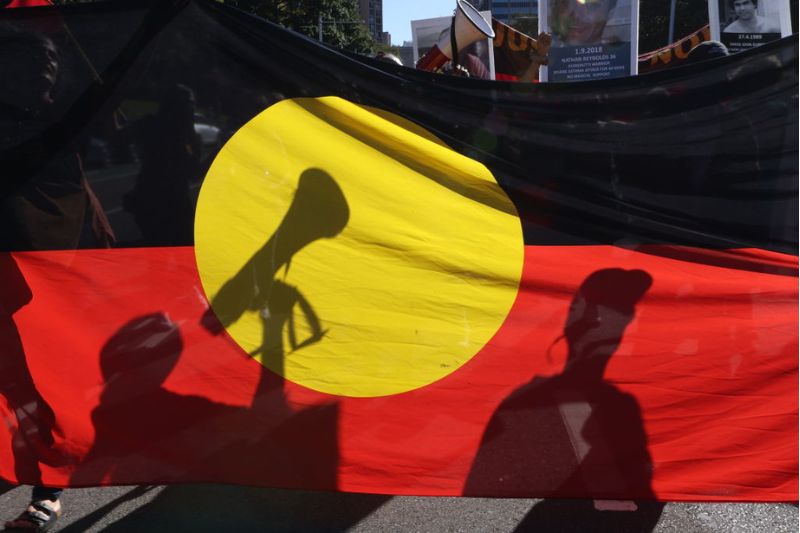In recent years Australia Day has been overshadowed by debate about its legitimacy as a day for all Australians. It marked the arrival of the First Fleet in Sydney Harbour. From the perspective of the first Australians it marks the beginning of dispossession, pandemics, invasion and exclusion from their own land. For them it is not a day, not for celebrating what unites Australians, but for mourning the history that has divided them. As a result many Australians have demanded that the day be changed, and some local Councils tried to move citizenship ceremonies to another date. The previous Government responded by endorsing the date and warning Councils not to change the dates.

This year Australia Day will resume its sleepy existence as a summer holiday with no need for a relevant history or cause. The Albanese Government has removed restrictions on changing dates for ceremonies. Few Councils have felt the work involved in the change to be worthwhile. The symbolism of the day as a central marker of the past dispossession and discrimination against Indigenous Australians, too, has passed to the referendum on a constitutional Indigenous voice to Parliament promised later in the year. If ideological wars break out about Australian identity, the Referendum will be their focus.
Nevertheless the Referendum and the history of the relationships between the first Australians and the invaders and their successors remain intertwined. The Referendum is only the most recent attempt by Australian Governments to discharge their responsibility to Indigenous Australians and to remedy the discrepancy between their lives and those of other Australians. The relative disadvantage of Indigenous Australians today has its roots in their treatment by European settlers and the often violent imposition of alien laws and customs.
The Referendum is the most recent in a series of initiatives taken by Australian Governments to include Indigenous Australians. Among them are the extension of the right to vote to returned Indigenous servicemen and then to all Australians, the referendum that amended the Constitution to allow the Federal Government to pass laws pertaining to Indigenous Australians, the establishment and removal by different governments of various Indigenous representative and consultative groups, and proposals to recognise Indigenous Australians in the Constitution. Over this time, too, Governments have also recognised the gap between the health and conditions of Indigenous and other Australians, and have committed themselves without much success to lessen it. They have also continued, however, to make decisions that affect the rights and welfare of Indigenous Australians without consulting them.
From this perspective the referendum is part of a long history of gradual recognition by governments of the disadvantage suffered by Indigenous Australians and of the roots of disadvantage in the suppression of their culture and rights. The history also includes previous attempts to consult Indigenous groups, and an increasingly effective advocacy by Indigenous representatives of the need for change. It embodies in a weaker form the recommendation contained in the Uluru Statement of 2017 ‘that a referendum be held to provide in the Australian Constitution for a representative body that gives Aboriginal and Torres Strait Islander First Nations a Voice to the Commonwealth Parliament. One of the specific functions of such a body, to be set out in legislation outside the Constitution, should include the function of monitoring the use of the heads of power in section 51 (xxvi) and section 122. The body will recognise the status of Aboriginal and Torres Strait Islander peoples as the first peoples of Australia’.
'The Uluru Statement from the Heart, drawn up by a widely representative group of Indigenous Australians, speaks eloquently both of the pathway to reconciliation and of the respectful reflection that should precede the Referendum.'
Although the Government has yet to provide details about the Referendum, it intends to introduce it in the second half of this year. The Prime Minister has also defined its scope. It will provide that there shall be a body, to be called the Aboriginal and Torres Strait Islander Voice; that The Aboriginal and Torres Strait Islander Voice may make representations to Parliament and the Executive Government on matters relating to Aboriginal and Torres Strait Islander Peoples; and that the Parliament shall, subject to this Constitution, have power to make laws with respect to the composition, functions, powers and procedures of the Aboriginal and Torres Strait Islander Voice.
Since the announcement of the Referendum political groups have argued about the need for the Referendum and its efficacy, about the necessary conditions it must satisfy to be passed, including whether the Voice should have greater or less force.
These questions have to do with the politics of the referendum, both in the broad sense of the relationships between the different groups among Indigenous Australians and among the wider Australian community affected by the establishment of the Voice, and in the narrow sense of the interests of the political parties served by its success or failure. Media attention will inevitably focus on the narrow political considerations.
In this context it is important that the large questions posed by Australia Day be kept in mind. They have to do with Australian identity and with the lasting effects of the European invasion of Australia and its supplanting of the rights, laws, way of life and customs of the First Australians. That history cannot be reversed but neither can it be ignored. It establishes the need for reconciliation that addresses the disadvantage and discrimination suffered by Indigenous Australians, recognises their uniquely distinctive standing in Australia, and gives them an effective voice in deciding issues that concern them. The Uluru Statement from the Heart, drawn up by a widely representative group of Indigenous Australians, speaks eloquently both of the pathway to reconciliation and of the respectful reflection that should precede the Referendum.
Andrew Hamilton is consulting editor of Eureka Street, and writer at Jesuit Social Services.
Main image: Protesters are seen through an Aboriginal flag during a rally on April 10, 2021 in Sydney, Australia. (David Gray / Getty Images)